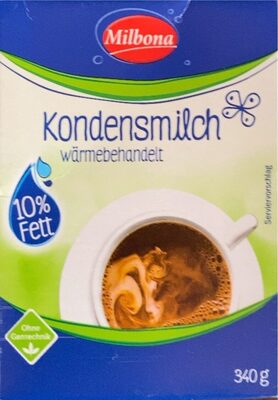
Barcode: 4056489023128
Kondensmilch
DOUBTFUL
📝 Reason: Certain components in this product have ambiguous Islamic rulings. Consultation with a qualified Halal certification authority is strongly recommended before consumption.
🏷️ Category: Dairies, Milks Liquid And Powder, Milks, Evaporated Milks, Evaporated Milks Without Sugar
📄 Certificates: Fsc
Ingredients:
Details
Kondensmilch: An Overview
Kondensmilch, known for its rich and creamy texture, is a popular product in the Dairies category. However, when it comes to dietary restrictions, particularly for Muslims, the Halal status of this product is crucial. In this article, we explore whether Kondensmilch is Halal, dissecting its ingredients and including crucial E-number analysis.
Halal Status of Kondensmilch
The Halal status of Kondensmilch is currently classified as “Doubtful.” This designation stems from ambiguous Islamic rulings regarding certain components in the product, particularly the stabilizer used. Consumers are advised to consult with a qualified Halal certification authority to ensure they are making an informed choice regarding their dietary preferences.
Ingredients Breakdown
Kondensmilch primarily contains the following ingredients:
- Milk
- Stabilizers: Carrageenan
Analysis of Ingredients
1. Milk
Milk is the foundational ingredient of Kondensmilch and is known to be permissible in Islam. This product is a staple in many culinary applications, and its essence does not conflict with Islamic dietary laws.
2. Stabilizers: Carrageenan (E407)
The stabilizer used in Kondensmilch is carrageenan, which bears the E-number E407. Carrageenan is derived from red seaweed and is commonly used as a thickener, gelling agent, and emulsifier in various food products. However, its Halal status is ambiguous, which is why the overall product is labeled as “Doubtful.” Some scholars have raised concerns over the extraction and processing methods of carrageenan, suggesting that it may not always align with Halal practices.
Understanding E-Numbers in Context
E-numbers serve as codes for food additives, used throughout the European Union and beyond. While many E-numbers have clear Halal and non-Halal classifications, others, like E407, can be more complex. For consumers seeking Halal products, familiarity with these classifications can help in making educated decisions.
Carrageenan (E407) Detailing
Stabilizers like carrageenan are widely accepted in food processes, but the criteria for Halal compliance can differ based on various factors, including the source of the seaweed used and the processing methods employed. As per typical standards, carrageenan can be plant-based and generally considered acceptable; however, due to the lack of stringent guidelines across suppliers, individual sources must be vetted for Halal compliance. Therefore, it’s recommended to check for Halal certification claims tied specifically to the source of carrageenan used in any product containing this ingredient.
Consultation with Certification Authorities
If you are uncertain about the Halal status of Kondensmilch or its ingredients, consulting with a qualified Halal certification authority is essential. They can provide insights into specific brands and batches, which is especially important as formulations can vary.
Conclusion
When it comes to deciding whether or not to include Kondensmilch in your diet, understanding its Halal status is critical. While the milk is permissible, the presence of carrageenan necessitates caution.
We encourage our readers to become proactive in their assessments, verifying whether any given product, including Kondensmilch, carries a Halal certification. Remember to rely on trusted resources and certification authorities for the most accurate guidance.
